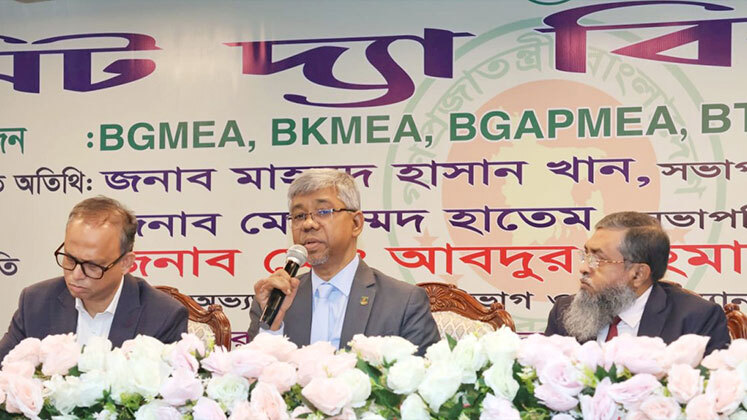
After more than 10 months of trial operations, the National Board of Revenue (NBR) is preparing to make its Bond Automation System mandatory, signalling a major shift in how bonded warehouse activities will be managed for export-oriented industries. Officials said compulsory adoption is essential to deliver the system’s promised gains in efficiency, transparency and streamlined processes.
The announcement came during the third session of the Meet the Business stakeholder consultation on the Bond Automation System – UP Module.
Representatives from major industry bodies attended, including the Bangladesh Textile Mills Association (BTMA), Bangladesh Garment Manufacturers and Exporters Association (BGMEA), Bangladesh Knitwear Manufacturers and Exporters Association (BKMEA), Bangladesh Garments Accessories and Packaging Manufacturers and Exporters Association (BGAPMEA) and the Leathergoods and Footwear Manufacturers and Exporters Association of Bangladesh (LFMEAB).
NBR Chairman M. Abdur Rahman said the automation module has been functioning live since January 2025, despite various operational challenges faced by both customs officials and businesses. He noted that the system has been running in online and offline modes for almost a year, allowing stakeholders to test features, raise concerns and contribute to iterative improvements.
He stated that the NBR had “consistently received concerns and challenges from the industry” and had taken continuous steps to address them. However, he emphasised that without making the system mandatory, “the core objectives of better bond management and simplified procedures will remain unmet.” He also pointed out that several manufacturers and exporters are already using the system successfully, proving its readiness for wider adoption.
Authorities said a detailed implementation roadmap would be published once stakeholders agree on the final recommendations. The roadmap will specify procedural steps, enforcement timelines and responsibilities for all parties involved.
The NBR Chairman added that the goal was to reach a collective understanding, after which the official schedule for compulsory implementation would be announced.






